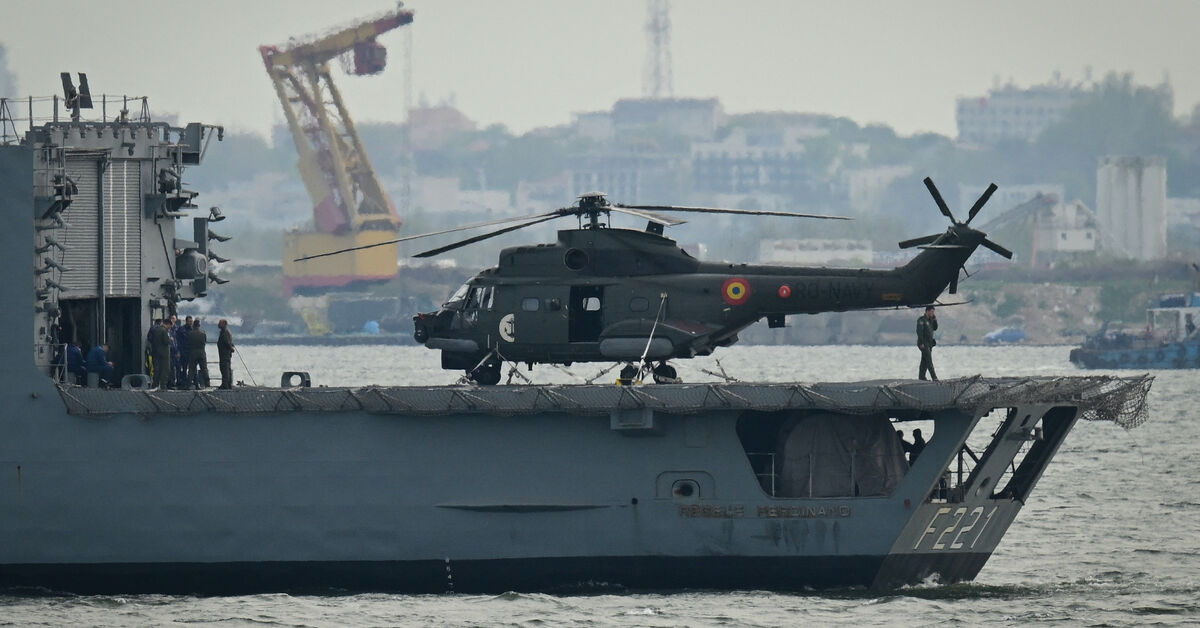Turkey sits out NATO drill in Greece despite detente with Athens
ANKARA — Turkey did not join a NATO exercise in Greece this week due to airspace disputes with Athens, Turkish Defense Ministry sources said on Thursday.
Thirteen NATO countries joined the war games — officially called the Ramstein Flag exercise — which started in Greece on Sept. 30, according to NATO air command’s websites.
Ankara decided not to participate in the exercise after Athens demanded Turkey share flight data of Turkish airplanes “based on a Greek exercise plan claiming the Flight Information Region (FIR) in the region solely under its own authority,” according to Defense Ministry sources.
“Despite a positive approach from NATO authorities, participation in the exercise has not been possible due to Greece’s insistence on its stance as the host country,” a high-level Defense Ministry source told reporters.
Claiming that its airspace extends for 10 nautical miles over the Aegean, Athens argues that Ankara is required to submit flight plans of military planes entering the FIR that Athens oversees. Turkey, in turn, staunchly rejects the Greek claim of a 10-mile airspace and recognizes the Greek national airspace over the Aegean as 6 miles in line with Greek territorial waters of 6 nautical miles. Ankara also refuses to share any flight data with the Greek side, arguing that Athens uses its FIR to justify its claims in the Aegean.
Later on Thursday, Turkey’s National Security Council, which convened under Turkish President Recep Tayyip Erdogan, issued a thinly veiled warning toward Greece. Turkey “would not allow its sincere approach and efforts to develop cooperation grounds” in the Mediterranean and the Aegean Sea “to be abused,” a statement issued after the council’s meeting read.
Despite being NATO allies, the two Aegean neighbors often engage in spats due to conflicting territorial claims in the Aegean Sea and airspace over it. The two countries also engage in skirmishes over NATO exercises in the Aegean due to these disputes.
Yet Turkey’s decision not to join the latest NATO exercise comes amid an ongoing detente in Turkish-Greek ties over the past year and a half, which began following the February 2023 earthquakes that struck southern Turkey. Erdogan and Greek Prime Minister Kyriakos Mitsotakis are now among the leaders who have met most often in the history of Turkey-Greece relations.
Following the pair’s meeting in New York last week, Greece’s Foreign Minister George Gerapetritis said the two countries agreed to explore conditions to see whether they are ready to initiate talks to demarcate maritime zones.
The Turkish Foreign Ministry also confirmed that there has been a mutual will to explore opportunities in a bid to solve historical differences between the two, but it offered a slightly nuanced approach.
“There are interrelated maritime and aviation issues in the Aegean, and both countries have the will to explore opportunities for solving them in good faith,” a source from the Turkish Foreign Ministry told Al-Monitor. Turkey has traditionally sought to settle its historical disagreements over the Aegean Sea as a whole, including airspace disputes instead of solely negotiating maritime demarcation.




